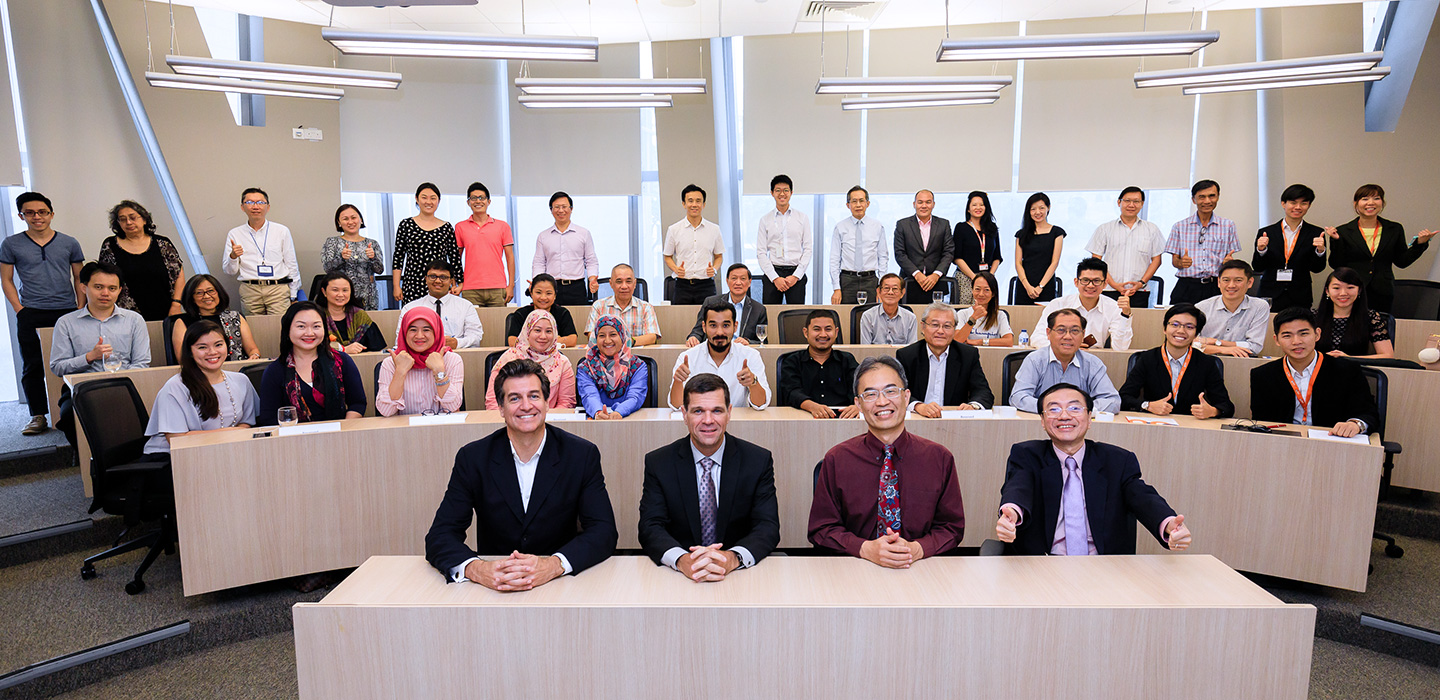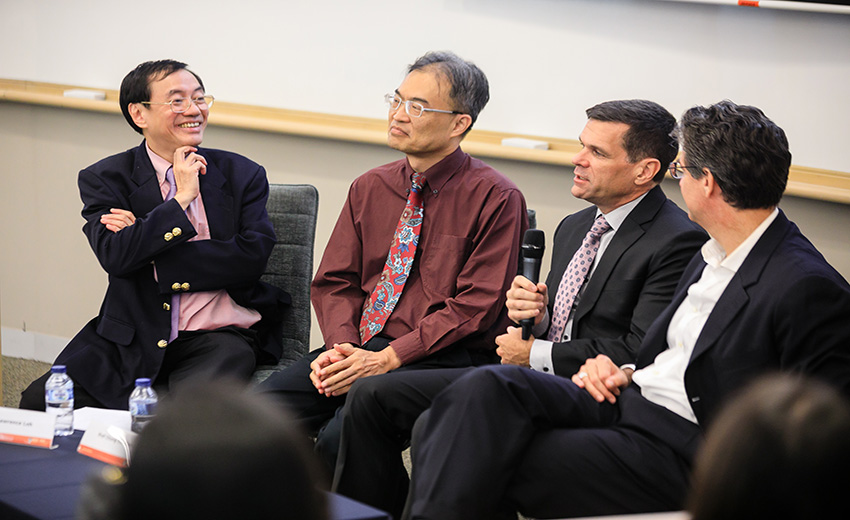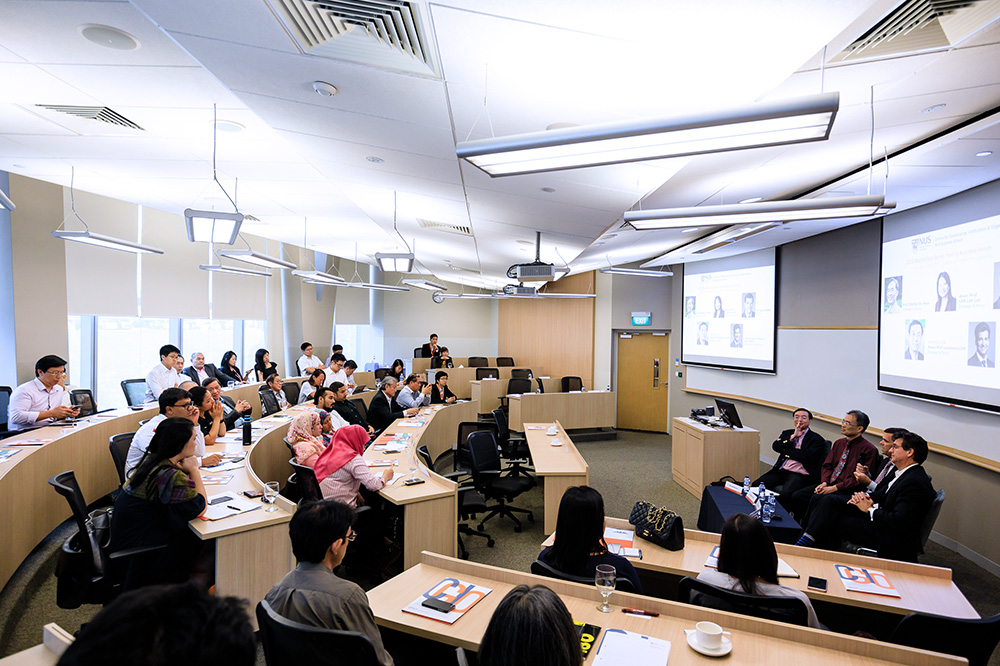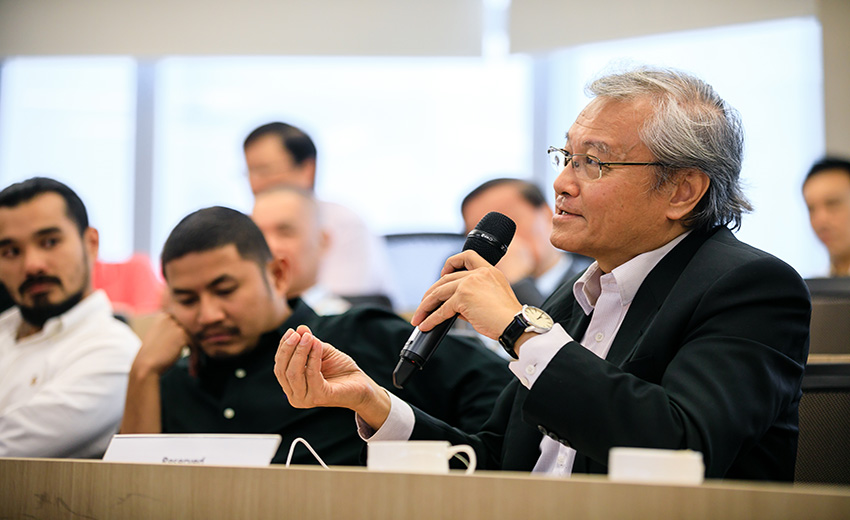More than 50 business leaders from the region including Malaysia and Indonesia attended a Masterclass Series on Family Business in a forum organised by the Centre for Governance, Institutions and Organisations (CGIO) of NUS Business School on Friday, 20 October 2017.
The lectures were delivered by four of NUS Business School’s faculty members: Senior Research Fellow Alex Capri, Professor Chung Chi Nien, Associate Professor Lan Luh Luh, Professor David Mitchell Reeb. The forum concluded with a panel discussion moderated by Associate Professor Lawrence Loh.
The Masterclass Series on Family Business covered four topics with the following salient points:
Senior Research Fellow Alex Capri: Family Business and Digital Economy
For family businesses, especially small and medium sized enterprises, the digital economy is a boon rather than a bane. Alex took the audience through the 4 D’s of disruption – digitisation, densification, diversification and decentralisation and explained how each aspect enables a business to be nimble and offers bespoke products. In addition, the use of cloud computing reduces the costs of customers’ profiling as well as product and customer tracking, Alex also pointed out that family business would need to synergise their business strategy with that of a digital strategy to capitalise on the many benefits digital transformation brings.
He ended by stating that there is never a better time than now, especially for small businesses to take advantage of the digital economy and grow the business.
Professor Chung Chi Nien’s topic: 3 myths about Family Business
Popular beliefs and the oft quoted ‘wealth does not pass 3 generations’ seemed to suggest family businesses is short lived and can’t drive economic growth. On the contrary, family businesses in fact account for a majority of enduring businesses in both developed and developing economies.
Prof Chung also debunk the myth that professional management is superior to family management in enhancing firm’s performance. His research shows there is a threshold for the maximum number of both family and professional management members that would enhance a firm’s performance.
Associate Professor LanLuh Luh: Structuring for Succession – Legal Aspects
The issue of ownership and control is a strategic consideration for family business succession. The various options such as total transfer of ownership, split ownership, setting up of trusts and holding companies and its implications were presented at the lecture. Associate Professor Lan made an interesting point that in her consulting career, she often advised the conflicting family members to settle out of court rather than in court. This is to avoid not only being the focal point of media attention but also being the subject of case studies in classes.
Professor David Reeb: Family Firm Innovation – Inhibited or Stealth
General research that shows family businesses spent less on research and development as well as issue fewer number of patents in comparison to non-family business firm suggest family firms lack innovation. But most family firms would consider innovating in ‘stealth’ as a better option to leaking out trade secrets through patents. Research on introduction of new products showed that those developed by family businesses do match or even outnumber the number of patented products in the market.
Professor Reeb also made a compelling case for the merits in issuance of dual class shares where family firms with greater control in ownership through dual class shares give better financial returns to its shareholders. The higher returns are achieved with substantial innovation by family businesses that has a controlling stake in the company.
Some of the questions and comments raised at the panel discussion included:
- Traditional versus new ways of working norms
- The tensions between keeping the accumulated wealth for the next generation and using that wealth to generate new products, growing the business and creating social impact.
- How do family businesses decide what transformation is needed versus what core parts of its businesses need to be retained to maintain its identity without losing its competitiveness?
- The rate of digital adoption in Singapore versus rest of the world
Find out more about CGIO’s work here: bschool.nus.edu.sg/cgio






